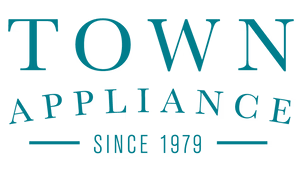Approximately twenty percent of the electricity consumption of a household is used by appliances. Electricity consumption is a common problem for civilization nowadays as the whole planet is battling and struggling to regain energy sources. For this reason, many of us became more aware of reducing our carbon footprint and try our best to save up on consuming electricity, water, and other sources. There are a few simple things you can practice around the household to save on energy consumption. First, it's important to know that the biggest consumers of electricity in a house are refrigerators, washers and dryers, freezers, as well as electric ranges.
Refrigerators
The place for the refrigerator and freezer should be the one that is the coldest in a room or a house. Avoid the proximity of any heaters and electric ranges, and make sure that they are not exposed to sunlight or another heat source. You should also provide sufficient space for ventilation when installing these appliances. A distance from the wall of 2-4 inches is recommended. Otherwise, there may be an increase in electricity consumption due to overheating. You should also make sure to close the refrigerator and freezer doors well after use and not leave them open for a long time without reason. Also, never put hot food in the fridge or freezer. Its the best to wait for the food to cool down. Clean it regularly, as it will use up extra energy if ice buildup on the interior walls. If the temperature on the refrigerator thermostat is set between 35 and 40 degrees, and the freezer at 30 degrees, then it will work most efficiently. A refrigerator with a capacity of 8 to 10 cubic feet is enough for two adults, so there is no need to buy oversized appliances. Another 5 to 10 cubic feet is recommended for each additional family member.

Washers, Dryers, and Dishwashers
Washing and drying machines, in general, can also be quite a big energy spenders. When washing clothes, make sure to use short programs whenever it's possible, as this will save you both electricity and time. Most of the laundry only needs to be refreshed and gently washed. Do not overload your washer with a detergent, but put only as much as necessary. If you over exaggerate it, then additional rinsing will be required and it will be more difficult for the machine to wash the laundry. When it comes to a dryer, you will save 20% of electricity if you use the spin cycle in a washer, before starting the drying process. Also, you can try to wash with the lowest water temperature that is sufficient for quality washing. Do not turn on the machine if you’ve loaded only half of the drum, as the full drum is always more energy efficient. The laundry won't wash well if you overstuff the drum with clothes, so think about that as well. Only white laundry is washed at a temperature of 200 degrees Fahrenheit. Only turn on the dishwasher when it's full. Maintain it and clean its interior regularly and check the salt level as well as the filter. Remove large food residues from the dishes before putting them in the dishwasher.

Ranges, Ovens, and Cooktops
You should also think about the ways to reduce your electricity consumption during the usage of your cooking appliances. When preparing some simple meals on your cooktop, heat only as much water as you need. You may be annoyed by the steam in the kitchen that arises during food preparation, and in order to reduce this condensation, cover the container in which you are cooking. This way, the heat will remain in the pot longer and you will save on additional electricity usage. If you are using a gas range, there is no need for the flame to circulate around the pan, but adjust it so that it's not too hot around the cookware. Note that microwave ovens are more energy efficient than ordinary ovens. On the other hand, when it comes to the burners, if the burner is empty, do not heat it. At the very end of cooking, turn off the burner, as the food will continue to cook on the heating element that's still warm. This way, you will also save electricity and therefore - money. If you are preparing food in the oven, do not open the oven door if the food is not ready, as this way you will be releasing heat from the inside of the oven, and therefore lose electricity. It's also necessary to clean your range, ovens, and heating elements regularly because their efficiency is reduced by accumulated grease and dirt.

Light Bulbs
As they seem so ordinary and small, one wouldn't think a light bulb can be that big energy spender, but it’s completely the opposite. So in order to avoid spending a lot of electricity, try to use energy-saving light bulbs, because they last 10 to 15 times longer and, unlike the standard ones, consume about 3 to 4 times less electricity. The same amount of light as a regular 75W bulb is provided by energy-saving 13W bulbs. What you need to keep in mind is that the economical effect is reduced if you turn them on and off frequently. If you use classic bulbs, it’s better to turn on the one with a higher power than several weaker ones. If several light bulbs of lower power are turned on at the same time, 50% more energy will be consumed. One 100W bulb gives the same amount of light as six 25W bulbs. Of course, the best savings is to turn off the lights when you leave the room.

Air Conditioners
If the room that's being cooled is not well closed and has any ventilation, your air conditioner may become a serious energy spender. Ventilate well and then close the room where you are staying, and only then turn on the air conditioner. Cooling with minimal energy consumption ("sleep" feature) is recommended during hot summer nights. The difference between the outside temperature and the one in the room should not be more than 44 degrees, because it will definitely spend a lot of your money, and above all, it’s not healthy.

Other Devices
As for the other larger or smaller devices in your home, you should most often stick to the rule: ”Turn it off when it's not in use.” If you are not using devices such as computers, a television, etc., turn them off. You will save energy and extend the life of your computer screen if you use a screen saver. When you iron your laundry, you will iron it faster and easier if it’s neither too wet nor too dry. You can iron more delicate laundry even if the iron is turned off. Turn off the iron if you get tired while ironing and want to take a break. If you're about to vacuum, first, move the pieces of furniture in the room s they can be vacuumed faster without wasting time while the vacuum cleaner is running for no reason. You can regulate the intensity of the vacuum cleaner and do the job with reduced engine power. This way, your vacuum cleaner will last longer and consume less electricity.
At Town Appliance we can offer you a great selection of high-quality appliances. Feel free to visit us online or any of our showrooms, or contact our highly experienced staff from our Customer Service for any additional information.






